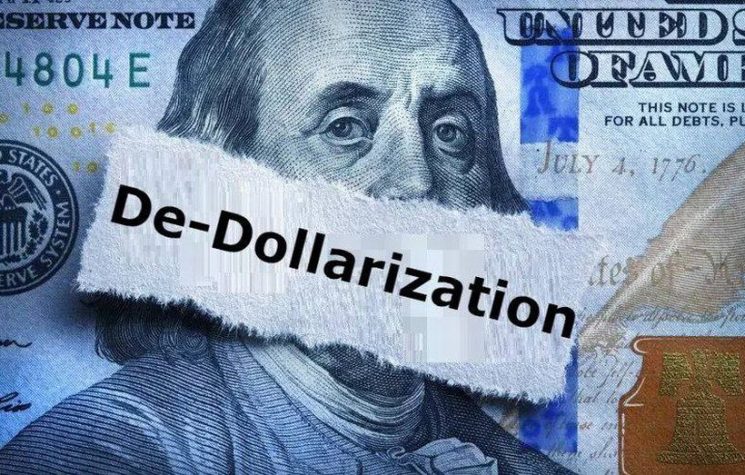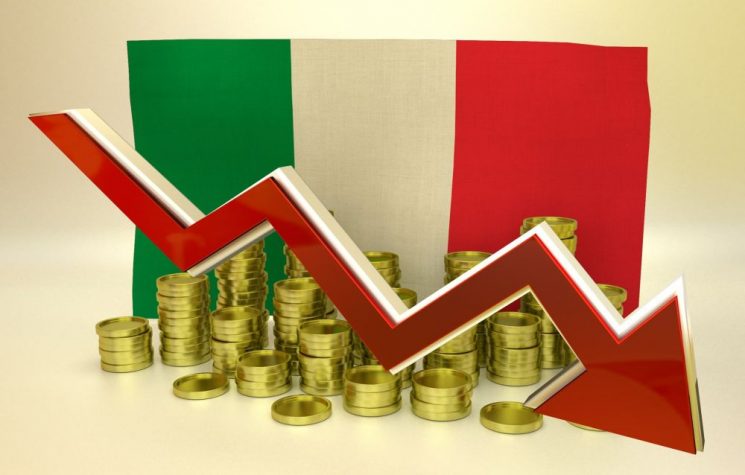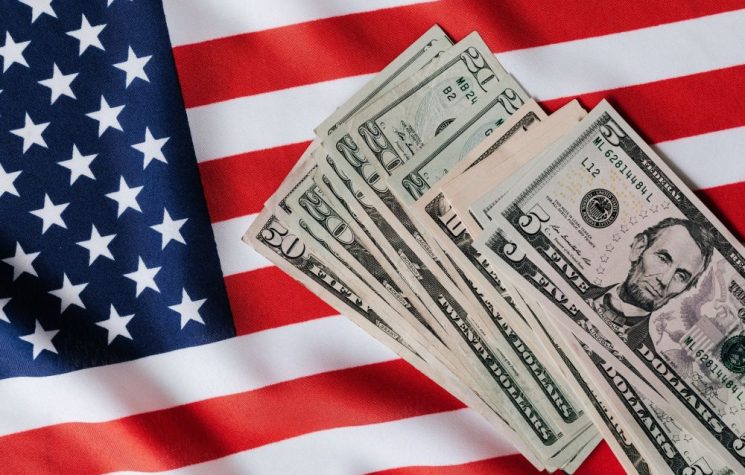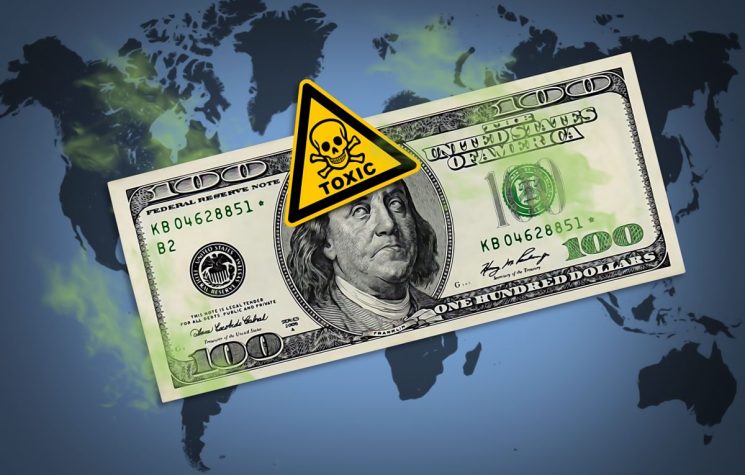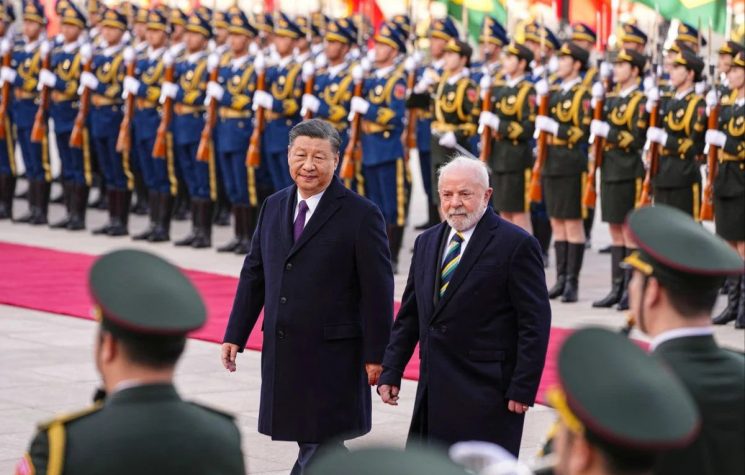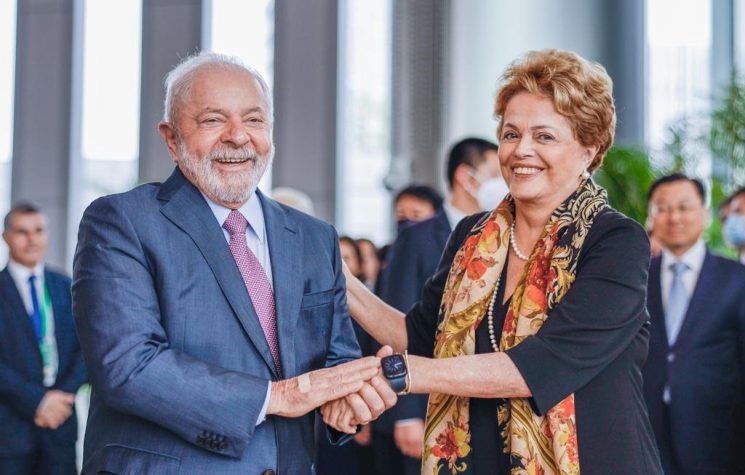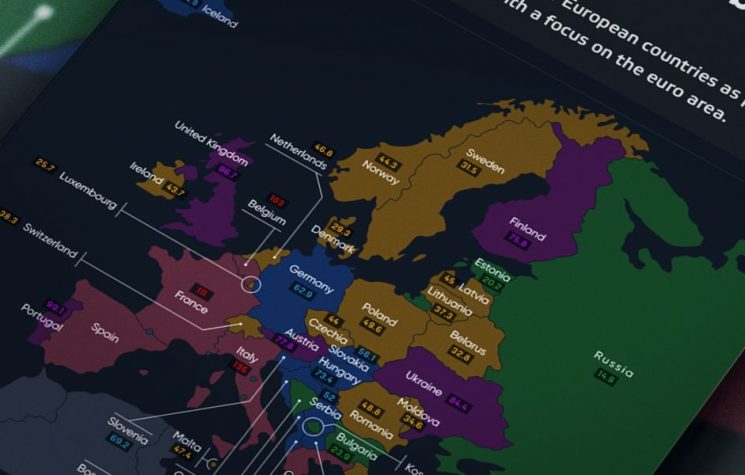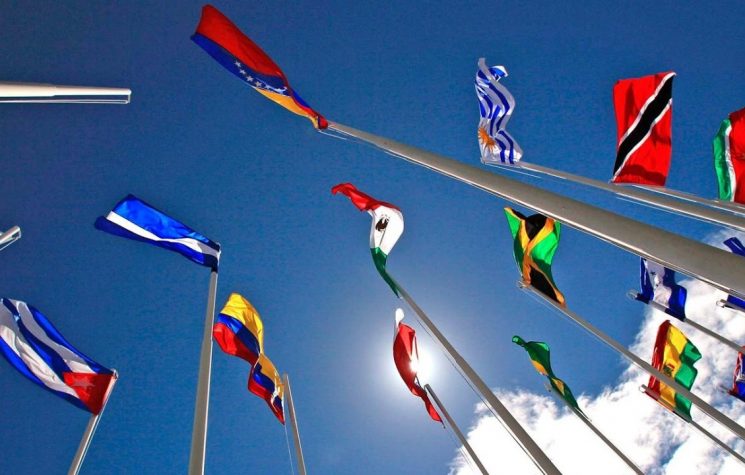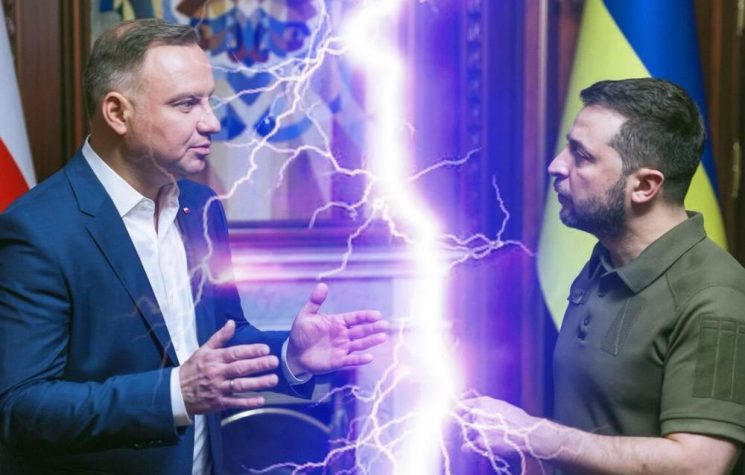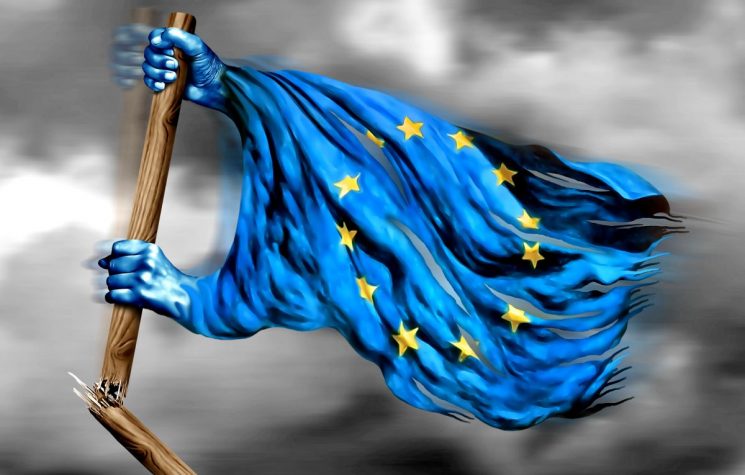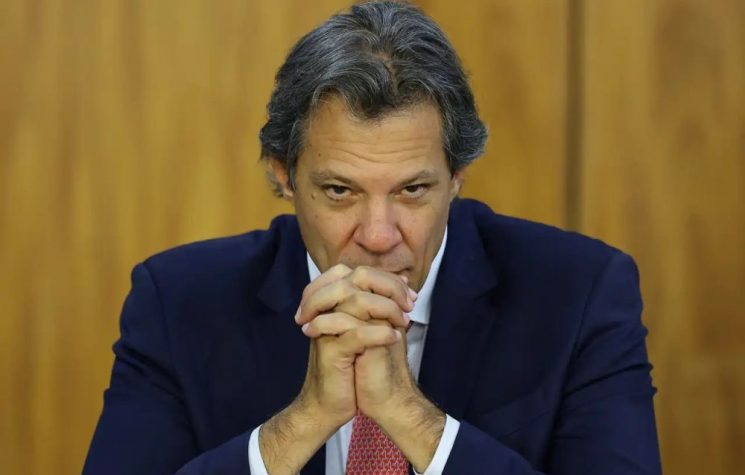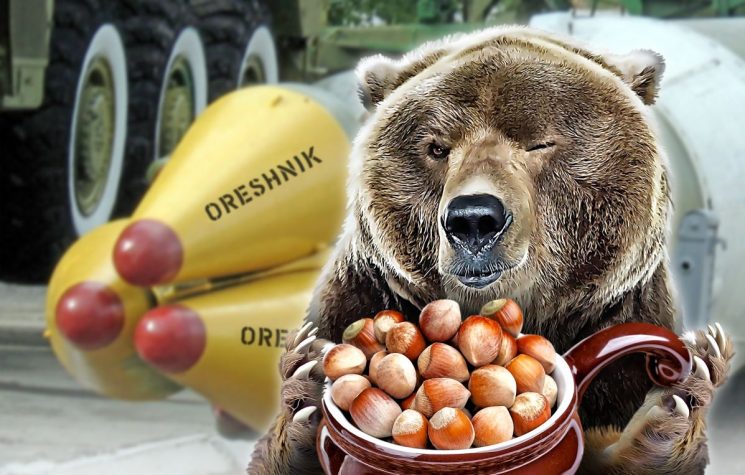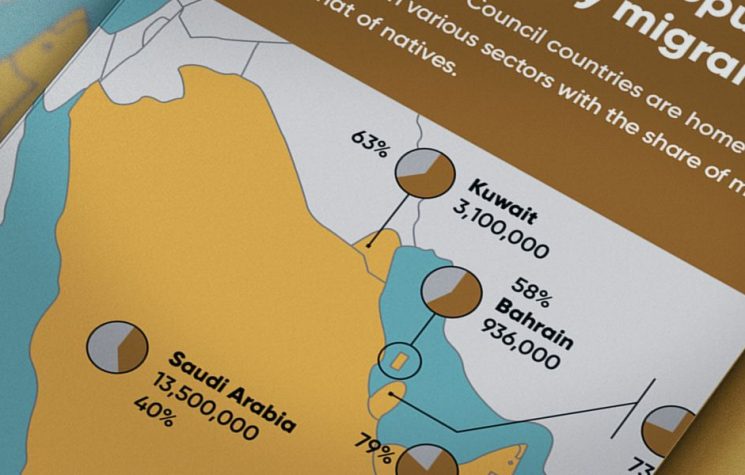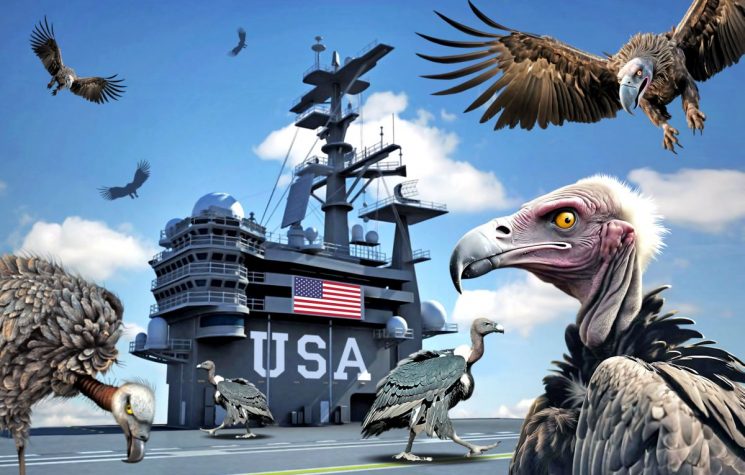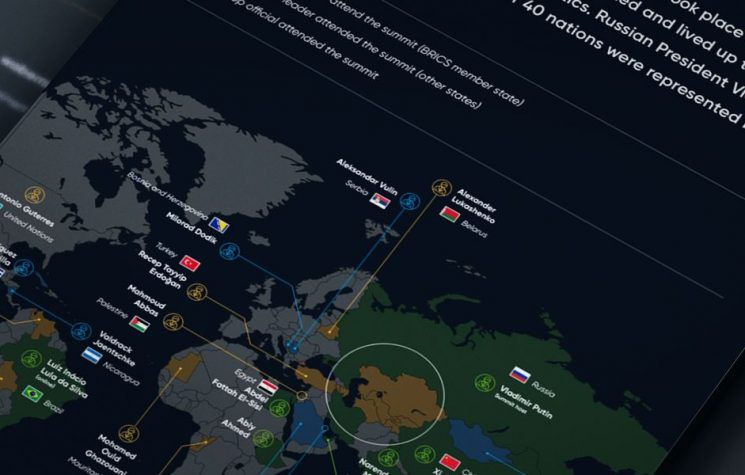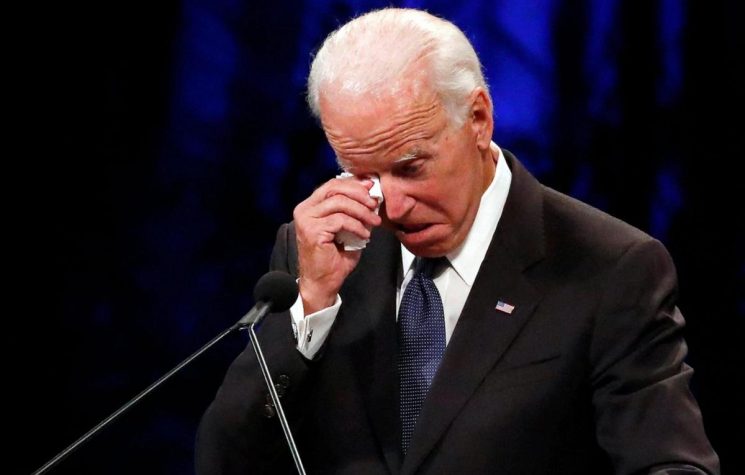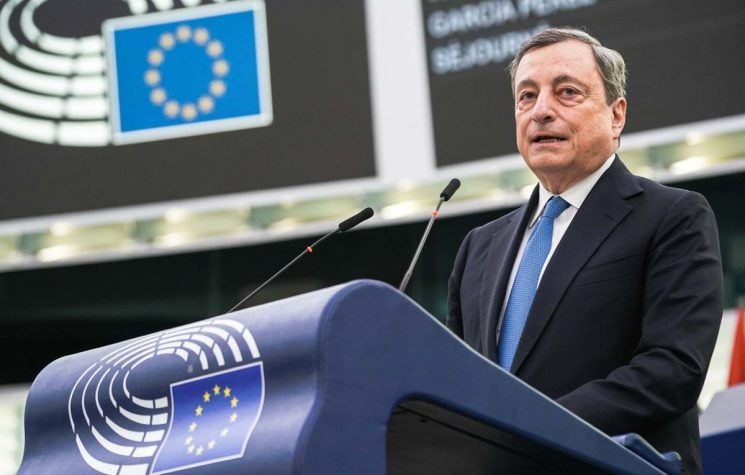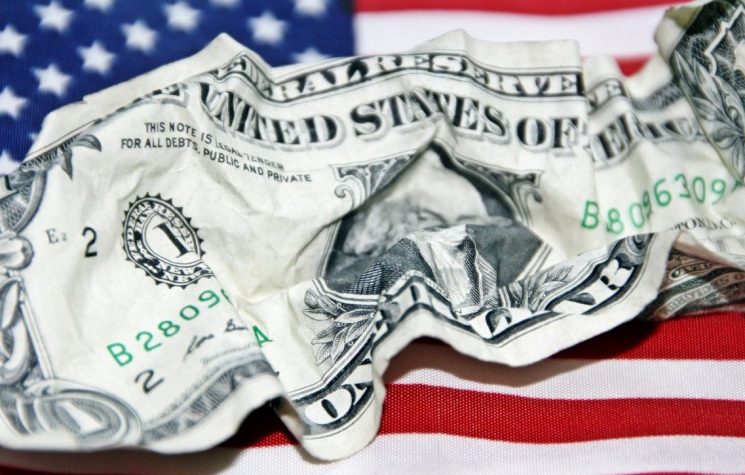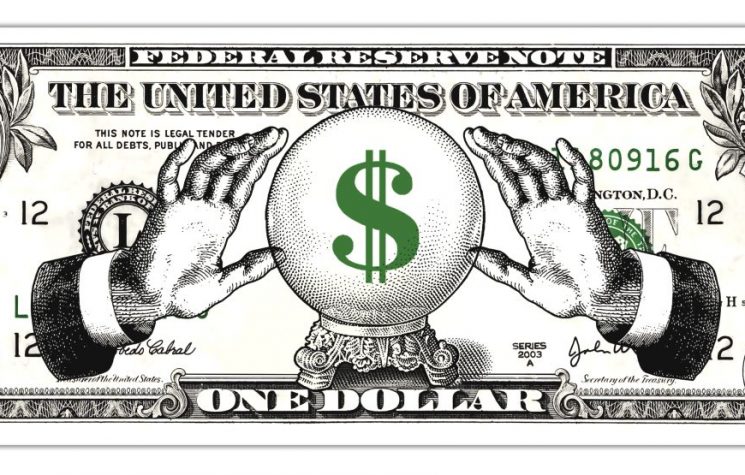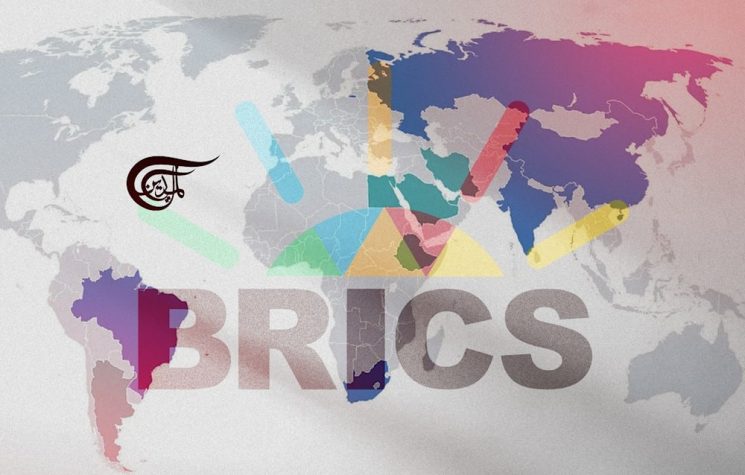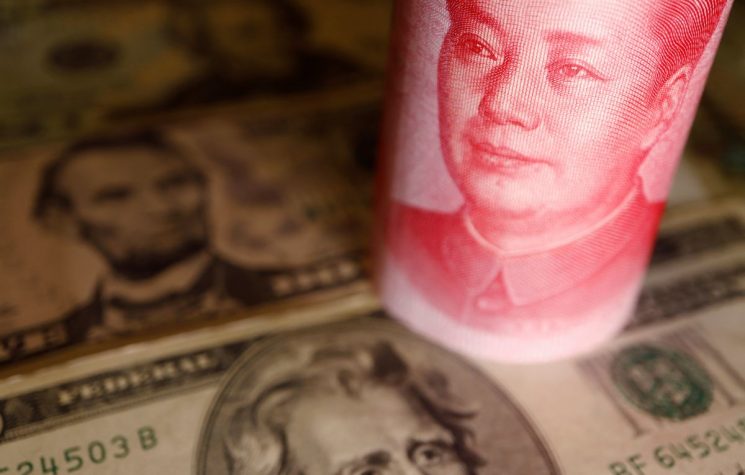A failure in Ukraine could well mean the disintegration of EU and NATO, Alastair Crooke writes.
Sometimes revolutionary change creeps up upon us by stealth; we only come to appreciate the major bifurcation when we come to notice it, in the rear-view mirror. This is especially so when the those who first pulled the trigger do not fully appreciate – themselves – what they have done.
What has been done? In a moment of visceral prejudice, a few ‘Team Biden’ staffers decided to leverage their plan to collapse the value of the rouble. So they hit upon the ruse of seizing the dollar, euro and Treasury bond reserves of the Central Bank of Russia.
So sure were they of their plan that this would completely stymie Russia’s efforts to save a sinking rouble, they did not even bother to consult the Federal Reserve or the ECB. The latter said so publicly and disagreed with the action taken.
What followed was the inadvertent launching of the western financial system into its gradual demise. The Russo-phobic Washington ‘hawks’ stupidly picked a fight with the one country – Russia – that has the commodities needed to run the world, and to trigger the shift to a different monetary system.
Will this monetary event change the geo-political dynamic too? For sure – it has, already.
By seizing its reserves, Washington in effect was telling Moscow: Dollars are debarred to you; you can buy absolutely nothing with dollars. If that be so, what would be the point of holding dollars? The end to the American and EU move was inevitable: Russia would sell its gas for roubles.
But here was introduced a Machiavellian twist: By playing both sides of the equation: i.e. linking the rouble to gold, and then linking energy payments to the rouble, the Bank of Russia is fundamentally altering the entire working assumptions of the global trade system (i.e. by replacing nominal fiat dollars with a solid commodity-backed, currency).
But note, the Central Bank of Russia did two things of geo-strategic importance: It both added a pricing ‘floor’, and (less noticed), took another one away. The Bank added a floor to the price of gold – by promising to buy gold at a fixed rate.
However, by insisting on payment in its national currency, Russia began to remove the floor imposed by the U.S. in 1971 to the dollar price through the world having to sell their national currencies (thus weakening them) to buy dollars (to pay for energy). In short, though Russian spokesman Dmitri Peskov said Russia would proceed cautiously, the move punctures the structural excess-valuation accorded to the dollar.
Middle Eastern energy producers see clearly where this is going: Russia – by linking the rouble to gold, and energy to rouble payment – is starting a process ultimately of linking the oil price to a gold price. This constitutes the quiet revolution. Gold tentatively becomes the neutral reserve currency, pending the development of a broader one.
This then, is the third ‘taking away’: It starts the severance from U.S. ‘paper-led’, commodity exchanges which the West manipulates to keep a lid on commodity and gold prices. It gives potentially a completely new horizon to OPEC+, for example.
Here is the point: If Treasuries and dollars held at the NY Fed are being shunned, then what would become the natural store of value? Well commodities, of course. Why is this so revolutionary? Because in an era of supply-disruption, food disruption and war, the West no longer will have access to ‘cheap’ commodities.
Maybe, the Team Biden staffers should have taken the trouble to consult the Federal Reserve, for ironically, not only did they spook other foreign holders of U.S. Treasuries and reserve dollars when they seized Russian reserves, but they did it just at the moment when domestic U.S. inflation is spiking sharply, and bonds are being shunned anyway.
After a forty-year run, U.S. Treasuries are today viewed as ‘return-less risks’. (Risky because of fear that inflation will turn bond rates even more negative in real terms. Already the yield on 2-year Treasuries is exploding higher. But if the Fed seriously wants to combat inflation, interest rates must go a lot higher.)
As one might expect, the run to commodities (for all these reasons: threat of war, supply disruption, Russia sanctions) has sent commodity prices ‘shooting the moon’. Elevated commodity prices impact all other prices and impinge everywhere – but nowhere more so than the U.S., where a top-heavy financialised construct rests upon a tiny base of commodity collateral. And where the Administration is caught between the Scylla of fearful inflation and Charybdis of a market crash if interest rates are hiked high.
Can this trajectory of economic crisis and declining western relevance – presaged by the shifting global monetary order; of threatening hyper-inflation; of food shortages; empty shelves; inflation-led poverty; spiking heating and gasoline costs – all be reversed via ‘a U.S. win’ in the Ukraine conflict?
What ‘Bucha’ tells us is that the West is in ‘an all or nothing’ heated frenzy to prove it can win this war. A failure in Ukraine could well mean the disintegration of EU and NATO. The patch-work cohesion within these alliances will not survive the trauma of defeat. And ‘Bucha’ says to us that West is ready to go for a ‘win’ in an imaginary war, even at the expense of strategic loss on the ground in Ukraine.
The desperation in the West is revealed too, in Europe’s mimicking of the Ouroboros (the ancient symbol of a serpent devouring its own tail and eating itself alive): By deliberately eschewing cheaper Russian commodities, Brussels is courting an inflationary spiral running out of control, and of Europe’s relegation to an economic backwater as its manufacturing base is rendered wholly uncompetitive due to high energy costs.
The president of the U.S. Atlantic Council, an outspoken “ideologue of unipolarity”, Frederick Kempe, wrote last week, “a Ukrainian victory — with a strong, united West behind it — would force a rethink about U.S. commitment and competence and shift the trajectory of declining transatlantic influence and relevance … [T]he question is not what the new world order would be, but rather if the U.S. and its allies can, through Ukraine, reverse the erosion of the past century’s gains – as a first step toward establishing the first truly ‘global’ world order” [emphasis added].
The ultimate salience of Ukraine is that the world (beyond narrowly West Europe and the U.S.), is watching intently. For the most part, it pointedly resists joining in condemnations of Russia. One token of this political re-set is the cold shoulder given to Biden by Saudi Arabia and the UAE. Both have refused to welcome a Biden visit, or even take his phone calls, whilst also declining to stop working closely with Russia on oil production levels and pricing.
Somehow, the geo-political ‘plates’ are already shifted. One regional leader summed it up succinctly: In the wake of Russia’s rouble initiative, ‘We no longer fear sanctions; We’ve seen other countries survive’.








